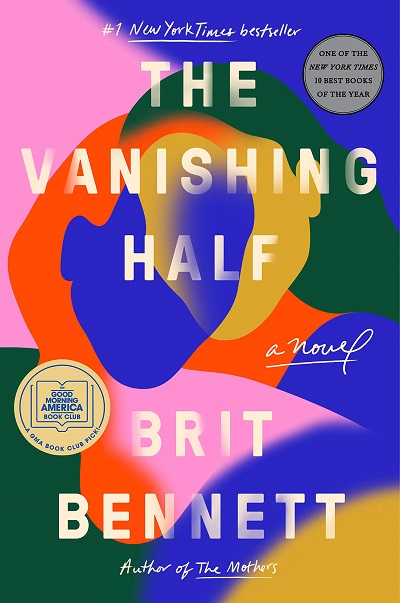february book⤴

The Vanishing Half by Brit Bennett
historical · literary · challenging · emotional · reflective | 352 pages
The Vignes twin sisters will always be identical. But after growing up together in a small, southern black community and running away at age sixteen, it’s not just the shape of their daily lives that is different as adults, it’s everything: their families, their communities, their racial identities. Many years later, one sister lives with her black daughter in the same southern town she once tried to escape. The other secretly passes for white, and her white husband knows nothing of her past. Still, even separated by so many miles and just as many lies, the fates of the twins remain intertwined. What will happen to the next generation, when their own daughters’ storylines intersect?
Weaving together multiple strands and generations of this family, from the Deep South to California, from the 1950s to the 1990s, Brit Bennett produces a story that is at once a riveting, emotional family story and a brilliant exploration of the American history of passing. Looking well beyond issues of race, The Vanishing Half considers the lasting influence of the past as it shapes a person’s decisions, desires, and expectations, and explores some of the multiple reasons and realms in which people sometimes feel pulled to live as something other than their origins.
discussion
next club meeting date: Wednesdsay, March 2 @ 7:30pm
questions from Penguin Random Housediscussion questions (spoilers):
member reviews
email your reviews to alicia@thedigitaldiarist.ca
alicia
I think of this as being a book about consequences. Maybe that's why I felt much more invested in the second half of the book, getting to know Stella in her new life and especially getting to know Jude and Kennedy. Stella's choice creates a ripple effect that complicates the relationships of all these characters. It permanently separates her from her twin, Desiree; it prevents her from having honest relationships with her husband and daughter; it leaves a missing piece in Desiree's life that Jude wants desperately to fill or at least understand.
A person's identity is shaped by all kinds of external influences. I don't think that a self is what you're left with when you strip all those things away—rather, a self is what you build from the materials you've been given. A self is a series of choices, of things that you have accepted, rejected, emphasized, and hidden. And I strongly believe that if you don't make those choices, the world will make them for you. The world will assign you an identity if you do not build one for yourself. They will fuse actor and character and go on believing that you are the role you play.
“That was the thrill of youth, the idea that you could be anyone. That was what had captured her in the charm shop, all those years ago. Then adulthood came, your choices solidifying, and you realize that everything you are had been set in motion years before. The rest was aftermath.”